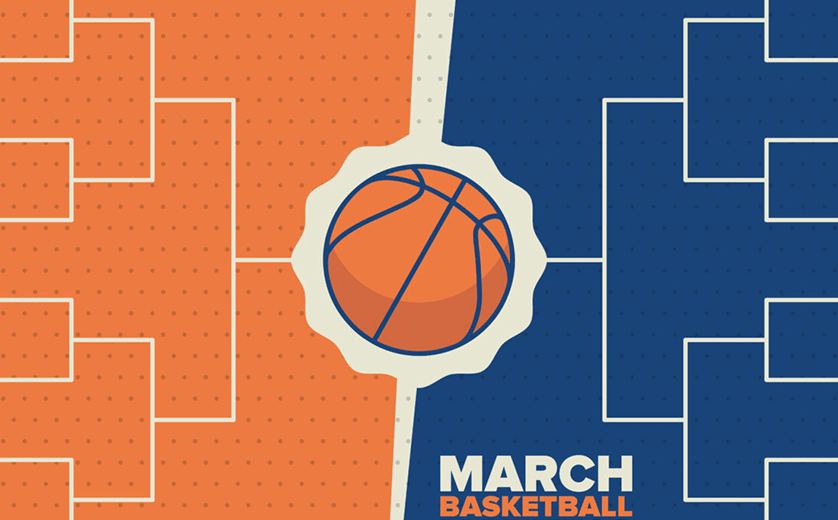This month marks the culmination of the college basketball season, when 68 teams vie to become national champion in the annual “March Madness” tournament. It must take a lot of luck to come out on top, right? Not as much as you might think, says a sociologist at Washington University in St. Louis.
“After crunching the numbers, it turns out that of the five major U.S. sports — basketball, football, baseball, hockey and soccer — basketball is the sport with the least amount of luck,” said Mark Rank, the Herbert S. Hadley Professor of Social Welfare and author of the forthcoming book “The Random Factor: How Chance and Luck Profoundly Shape Our Lives and the World around Us.”

What explains this? In a typical basketball game, Rank said, each team normally scores dozens of baskets, whereas in soccer or hockey a team may only score once or twice. In those situations, luck plays a far greater role because a lucky bounce might determine the outcome of the game.
“As I explain in my book, one way of showing this is with the flipping of a coin,” Rank said. “If we flip a coin 10 times, we may very well wind up with seven or eight heads or tails, even though the overall probability on any individual coin toss is 50 percent. In the case of 10 tosses, there can be significant deviations from the overall probability due to chance.
“However, if we flip a coin 100 times, we will probably find that close to half of those coin tosses will be heads and the other half tails. Similarly, the skills of the players are more likely to come to the fore when there are more opportunities to score. In these cases, the differences in skills have a greater chance of exerting themselves in determining the outcome of a game.
“Even though basketball has the least amount of luck when compared to the other sports, I think it nevertheless greatly enhances a fan’s experience, particularly during March Madness,” Rank said. “The reason is that with luck comes hope. For those rooting for lower-seeded teams in the tournament, there is always the chance that their team might win. This could be because they happened to play better than the opposing team on a given day, but it might also be because the ball happened to bounce the right way as a result of luck.”
Due to the sheer number of teams playing, the tournament is an optimal opportunity for an underdog team to get lucky and make a run.
“Everyone loves the underdog,” Rank said. “One reason is that we like to see the unexpected happen. If everything followed according to plan, life would be incredibly dull. Luck and chance can allow an underdog team to at times succeed where they might be expected to fail. That gives basketball a much more exciting dynamic than if everything went according to script (or seeding), and that makes it much more fun to watch.”
The “Random Factor” looks at luck from macro to micro, from events like the Cuban missile crisis to our personal encounters and relationships. From his perspective as a scholar of poverty, Rank also delves into the class and race dynamics of chance, emphasizing the stark disparities it brings to light.
